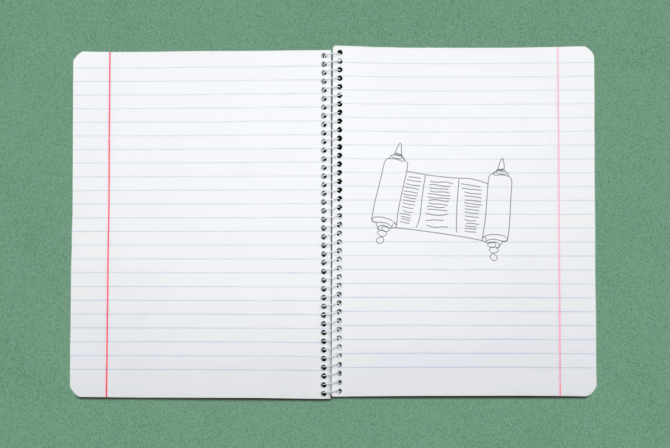I have epilepsy. I also have two children. And for the six years of being a mother, I was able to, mostly, operate on a “and never the two shall meet” basis. Until April. In April, I had a seizure early in the morning. My 6-year-old son found me recovering from it on the bathroom floor. After that, there was no more hiding.
It’s not that I never talked about it with him. He knew why I had a Medic-Alert bracelet because he has one for his allergies. I don’t have seizures regularly as it is controlled with medication that both my kids see me take at breakfast and during the day. They know that they should not flash the lights because it makes Mommy sick. And I had a pretty frank conversation with my son about the fact that I have epilepsy, though it was a couple years ago and it’s hard to know what he retained. My 4-year-old daughter hasn’t known as much. Maybe she’s heard the word “epilepsy,” but she never knew what it really meant.
For them to watch me struggle, for two months, to get my medication levels back to a therapeutic level has been hard for me. Not because they’ve been difficult about it or because they haven’t understood, but because this was the most metaphorically naked I have ever been in front of them. My epilepsy is, by far, the ugliest part of myself. I hate it. I’ve had a long personal road of acceptance and rejection with it but mostly, I hate it and wish that I could be free of it. It is an unreliable disruption in my otherwise extraordinarily busy life, and I will not ever be able to fully control it.
READ: My Fears About Being a Mom with Epilepsy
To their enormous credit, the kids have been troopers and adjusted to things as needed. When my husband had to go on a trip out of the country shortly after the seizure and my best friend and my mother split the duties of helping me overnight, the kids went along with it. When I had mornings when the new medication levels were knocking me out and I couldn’t take them to school, they moved quicker so my husband could do double drop-off and, once, my son even went with a neighbor. They have understood when I have suddenly needed to lie down or when I can’t take them to the playground because I didn’t feel well.
The worst one was when I was taking my daughter to school one day and felt sick half-way there. She and I had to sit down on a bench until my husband came to get us in a cab. While we waited, I kept my hand on her leg while I was doubled over, very aware that I didn’t want to scare her. I talked with her about the cab that Daddy would be arriving in. She commented with wonderment that she had never been in a cab and then asked me why I was laughing. It is amazing the silver lining kids can find in horrible moments like that.
We took her to school, and then took me back home. I was a wreck. In addition to feeling physically horrible, I was intensely worried that my daughter wouldn’t trust me to take care of her again, that she would be fearful and anxious. Each child had already started doing things to take care of me in their own way: my daughter was telling me to look away from the flashing lights of tow trucks; my son would greet me at pick-up by asking how I was feeling rather than saying hello. I felt terrible. I was the parent. While empathy is great, a role reversal was not.
READ: Six Ways to Help Kids Interact with People with Disabilities
After I spent the day in bed recovering, my husband brought the kids home from school. I was terrified about what my daughter would say. I profusely apologized to her. She cuddled up to me and said, “It’s good that Daddy came to get us when you weren’t feeling well.” How? How do kids do that? How could they understand so much when I couldn’t? How could they be so forgiving? How could they not hate it as much as I did?
As several weeks of recovery stretched to many weeks of recovery, the conversations about it became more candid with the kids. I told them when I was doing medication increases so they knew to expect the possibility of reactions like exhaustion, or times that I needed to be careful. My husband was getting the children up every morning (normally a job we share), and we had to explain why. I talked with my son about how to make phone calls on the home phone and then, later, on my cell phone, if there was ever an emergency. While we had talked with him about this before, I still hated putting this level of responsibility on a 6-year-old.
I eventually became more stable and was able to resume the majority of my regular hectic schedule. The one thing that I still wasn’t able to resume was getting the kids up in the morning. This didn’t bother them much. My daughter developed a routine of coming to the bedroom to say good morning before going to get dressed. I was almost always ready to help with breakfast; it was just that earliest hour of the morning when I was most vulnerable.
READ: The Pains of Parenting with Arthritis
Their acceptance of all of this was truly extraordinary. While it did not make me more comfortable with my epilepsy, it did make me more comfortable sharing things about it with them in an age-appropriate way.
My husband left for another conference yesterday. Since I am not yet at the fully therapeutic medication levels, my best friend came back again to help. My daughter finally started showing her resentment. It had been two months exactly since the seizure, and things were still not completely resolved. I told them that I was getting another blood test this week and, hopefully, we would find out that I was safe enough to be up early.
They asked very specific questions about this: How does the doctor know how much medicine is in my blood? What is a good level of medicine? And, from my daughter: What was a blood test? I was able to answer all of these honestly and, while it felt weird to do so, it was also a surprising relief. My son finally started sharing his own memories of that morning and was a little surprised that I didn’t have much memory of it myself. He asked why the seizure happened at all. It was the one question that I couldn’t answer but the one I wanted to the most.
Later that night, my daughter cried and alternated between saying that she missed Daddy and saying that she wanted me to get better. While I comforted her and told her that I wanted to get better, too, I was reassured by the fact that she didn’t feel she needed to be the strong one anymore. In fact, I realized, the fact that they were comfortable asking so many questions in a more urgent and impatient manner meant that they both felt they didn’t need to be strong anymore. They had seen the ugly, accepted it, nurtured it, and now wanted things to be normal again. I was in awe and humbled by their acceptance of my whole being. They were, somehow, able to achieve this, even when I still couldn’t.







